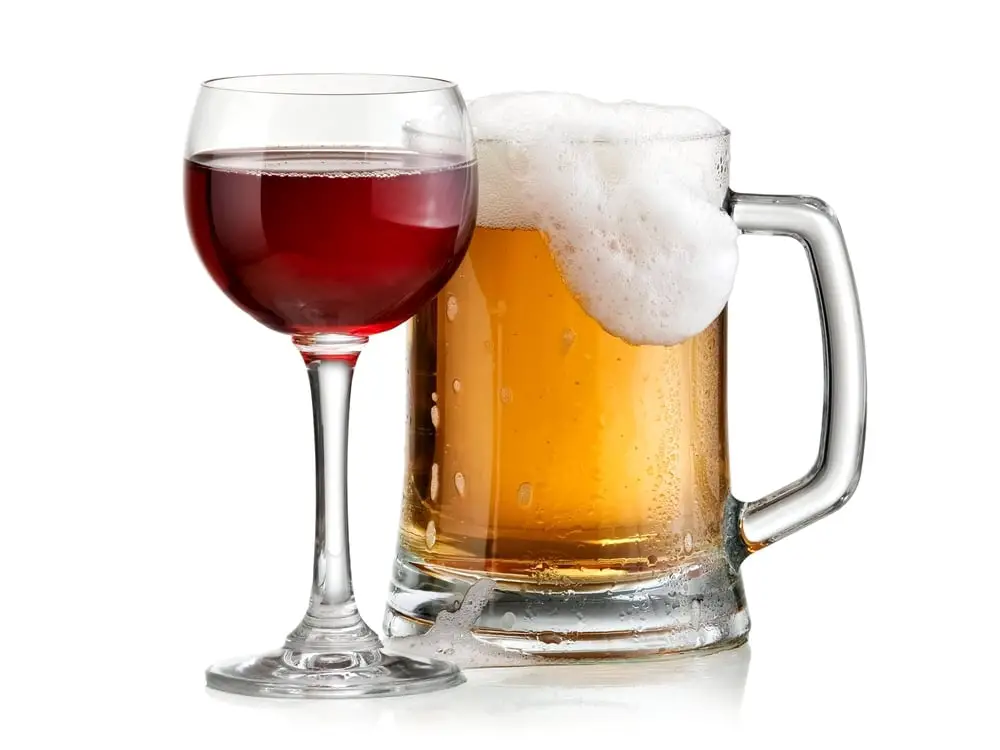When it comes to alcoholic beverages, beer and wine are among the most popular choices worldwide. While their flavors, textures, and cultural associations vary widely, one aspect that often comes under scrutiny from health-conscious consumers is their carbohydrate content.
Understanding the carbs in beer versus wine can help individuals make informed decisions based on dietary preferences or restrictions.
Carbohydrates in Beer
Beer is typically higher in carbohydrates due to the presence of malted grains, which include barley, wheat, and corn. These grains undergo fermentation, but not all the sugars convert into alcohol, leaving residual carbohydrates. The carbohydrate content in beer can vary significantly depending on the style and brewing process.
Light Beers: These usually contain fewer carbohydrates, generally between 3 to 6 grams per 12-ounce serving.
Regular Beers: A standard 12-ounce serving of regular beer has about 10 to 15 grams of carbohydrates.
Craft Beers: These often have higher carbohydrate contents due to their diverse ingredients and brewing methods, ranging from 15 to 20 grams per 12-ounce serving.
It’s important to note that “low-carb” beers are also available on the market, specifically formulated to reduce carbohydrate content, appealing to those on low-carb diets like keto.
Carbohydrates in Wine
Wine, made from fermented grapes, tends to have fewer carbohydrates compared to beer. The carb content in wine primarily comes from residual sugars left after the fermentation process. The amount of residual sugar varies widely among different types of wine:
Dry Wines: Both red and white dry wines contain minimal residual sugar, typically ranging from 1 to 3 grams per 5-ounce serving.
Semi-sweet and Sweet Wines: These can have higher sugar content, from about 5 grams to over 20 grams per 5-ounce serving depending on the sweetness level.
Fortified Wines: Varieties like Port, Sherry, and Vermouth might have higher sugar levels due to the addition of spirits and sugars during production.
Factors Affecting Carbohydrate Content
The carbohydrate content in both beer and wine is influenced by several factors:
Fermentation Duration and Conditions: Longer fermentation allows more sugar to be converted into alcohol, reducing carbohydrate content.
Ingredients: The types and qualities of the ingredients, such as the variety of grapes or grains, also impact carb levels.
Processing Methods: Filtration and refining processes can alter the carbohydrate levels in the final product.
Health Considerations
While moderating carbohydrate intake is crucial for certain diets and health conditions, it’s also important to consider the overall context of alcohol consumption. Both beer and wine contain alcohol, which has its own health implications, including effects on metabolism, liver health, and calorie intake.
Choosing between beer and wine based on carbohydrate content depends on individual dietary goals and health considerations. For those monitoring their carb intake, dry wines may offer an advantage due to their lower carbohydrate content. However, for others, the choice may hinge more on personal preference for taste, the drinking experience, or cultural factors. As always, moderation is key in the consumption of alcoholic beverages to maintain overall health.
Practical Advice for Choosing Beer or Wine Based on Carbs
For those looking to enjoy alcoholic beverages while managing carbohydrate intake, here are a few practical tips:
Read Labels
Many beer and wine producers now include nutritional information on their labels, which can provide insight into the carbohydrate content. This is particularly helpful for beers, where there can be a wide range of carbs depending on the type.
Opt for Dry Varieties
If you’re leaning towards wine, dry varieties are typically the safest bet for lower carbohydrate content. Dry wines have undergone fermentation processes that consume most of the sugar from grapes, leaving less residual sugar in the final product.
Consider Serving Size
It’s important to consider the serving size when comparing the carbohydrate content between beer and wine. While beer is typically served in 12-ounce portions, wine is usually served in 5-ounce glasses. This difference can affect the total intake of carbohydrates per serving.
Explore Low-Carb Options
For beer lovers, exploring low-carb options can be beneficial. Many breweries offer low-carb beers that mimic the taste of their higher-carb counterparts but with significantly reduced carbohydrate content.
Factor in Frequency and Quantity
How often and how much you drink should also play into your decision-making process.
Drinking smaller quantities less frequently can help manage not only carbohydrate intake but also overall calorie consumption.
Health Benefits and Risks
Both beer and wine offer certain health benefits when consumed in moderation. For example, red wine is renowned for its antioxidants, such as resveratrol, which may offer heart health benefits. Beer, containing vitamins and minerals from grains, may also offer nutritional benefits.
However, the risks of alcohol consumption should not be overlooked. Excessive drinking can lead to a range of health issues, including liver disease, cardiovascular problems, and increased risk of certain cancers. The key is moderation.
Cultural and Personal Preferences
Beyond carbohydrates, personal taste and cultural preferences significantly influence the choice between beer and wine. In some cultures, wine is the drink of choice for certain meals or celebrations, while in others, beer may hold a similar place.
Ultimately, the decision between beer and wine is a personal one, influenced by dietary concerns, personal preferences, and cultural practices. Those concerned with carbohydrate content can find suitable options in both categories, but it’s always wise to enjoy them in moderation to maintain overall health and well-being. Whether you choose a glass of pinot noir or a bottle of craft lager, understanding the nutritional content can help you make choices that align with your health goals.


















